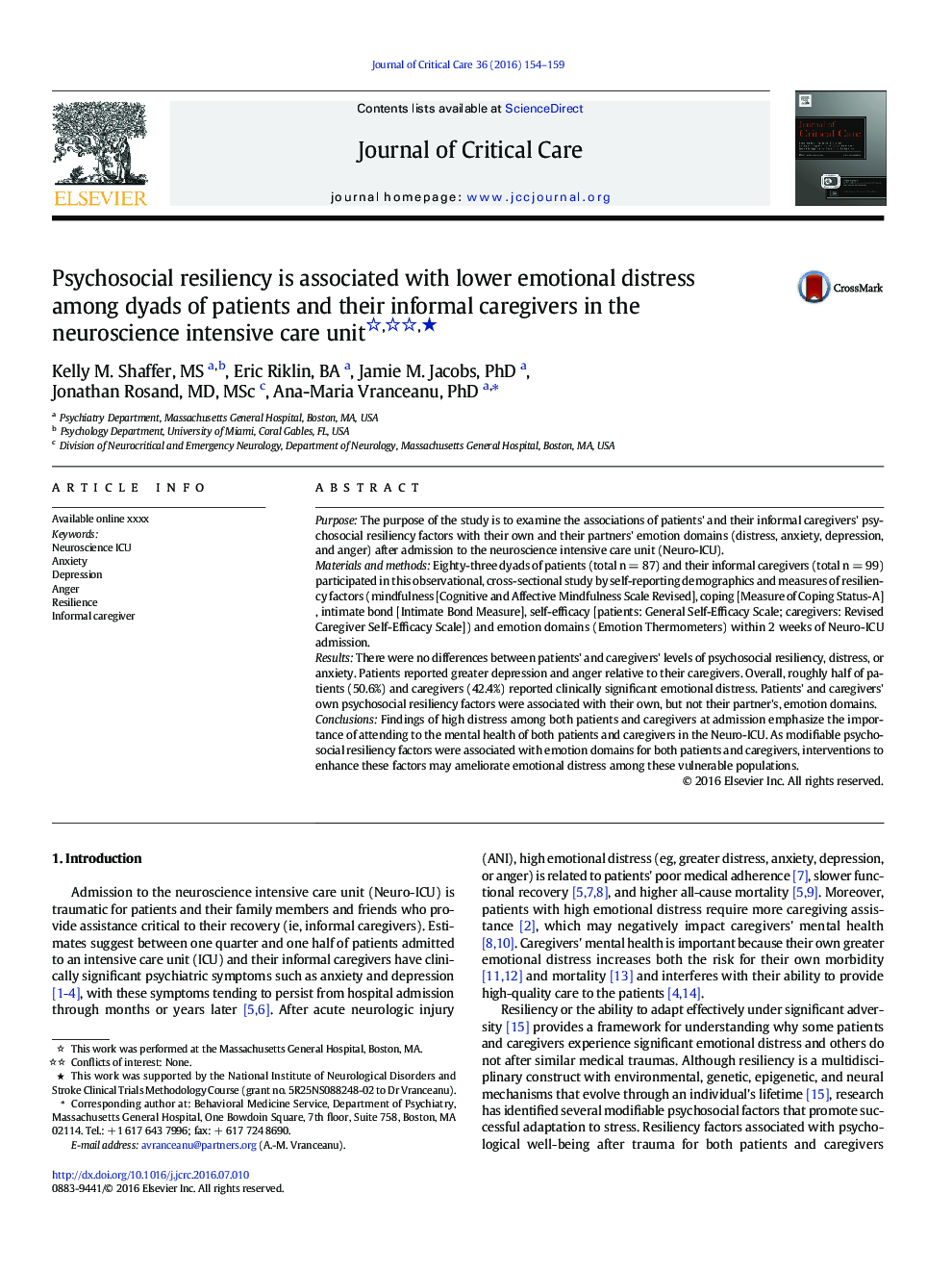| کد مقاله | کد نشریه | سال انتشار | مقاله انگلیسی | نسخه تمام متن |
|---|---|---|---|---|
| 2764389 | 1567676 | 2016 | 6 صفحه PDF | دانلود رایگان |
PurposeThe purpose of the study is to examine the associations of patients' and their informal caregivers' psychosocial resiliency factors with their own and their partners' emotion domains (distress, anxiety, depression, and anger) after admission to the neuroscience intensive care unit (Neuro-ICU).Materials and methodsEighty-three dyads of patients (total n = 87) and their informal caregivers (total n = 99) participated in this observational, cross-sectional study by self-reporting demographics and measures of resiliency factors (mindfulness [Cognitive and Affective Mindfulness Scale Revised], coping [Measure of Coping Status-A], intimate bond [Intimate Bond Measure], self-efficacy [patients: General Self-Efficacy Scale; caregivers: Revised Caregiver Self-Efficacy Scale]) and emotion domains (Emotion Thermometers) within 2 weeks of Neuro-ICU admission.ResultsThere were no differences between patients' and caregivers' levels of psychosocial resiliency, distress, or anxiety. Patients reported greater depression and anger relative to their caregivers. Overall, roughly half of patients (50.6%) and caregivers (42.4%) reported clinically significant emotional distress. Patients' and caregivers' own psychosocial resiliency factors were associated with their own, but not their partner's, emotion domains.ConclusionsFindings of high distress among both patients and caregivers at admission emphasize the importance of attending to the mental health of both patients and caregivers in the Neuro-ICU. As modifiable psychosocial resiliency factors were associated with emotion domains for both patients and caregivers, interventions to enhance these factors may ameliorate emotional distress among these vulnerable populations.
Journal: Journal of Critical Care - Volume 36, December 2016, Pages 154–159
